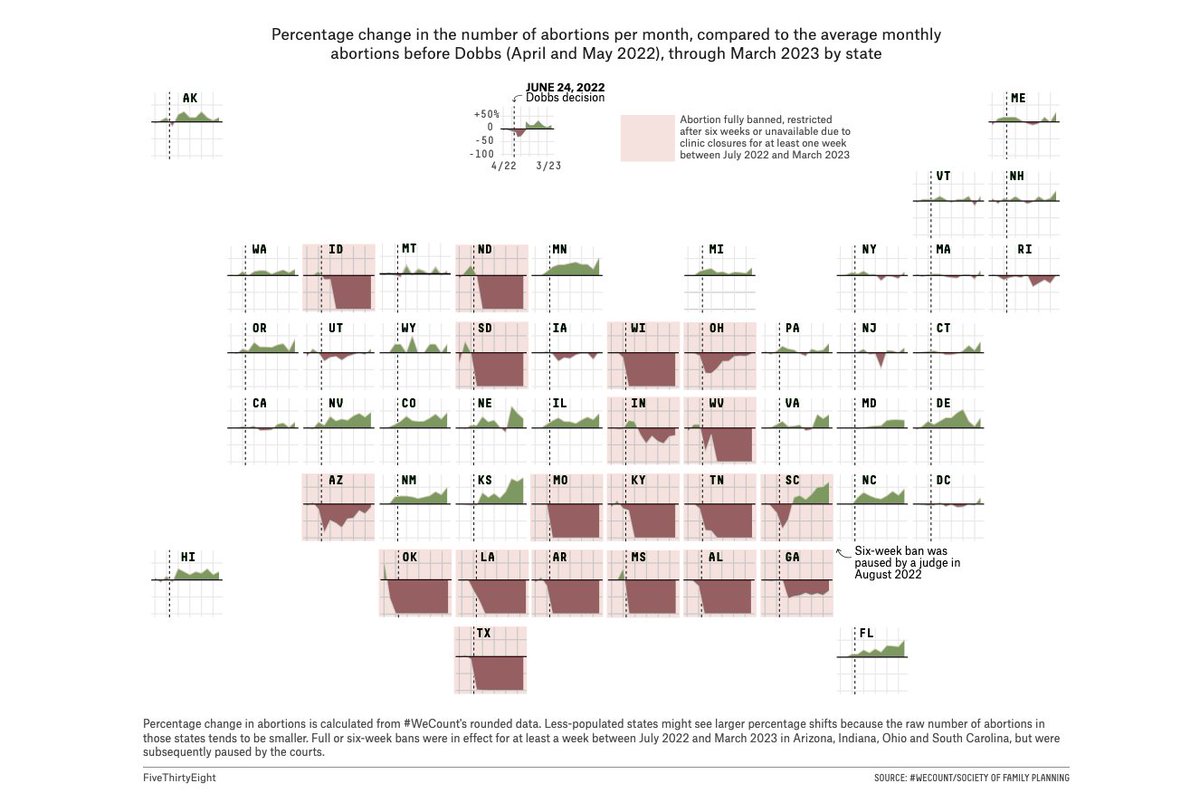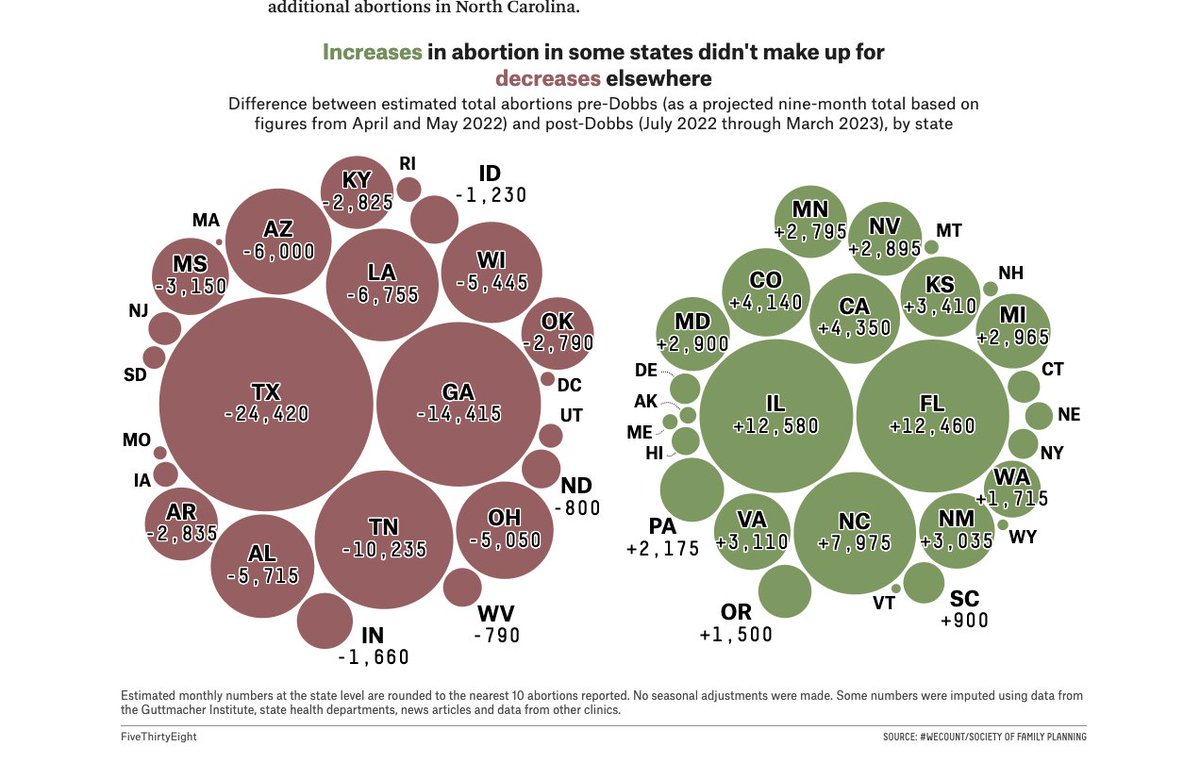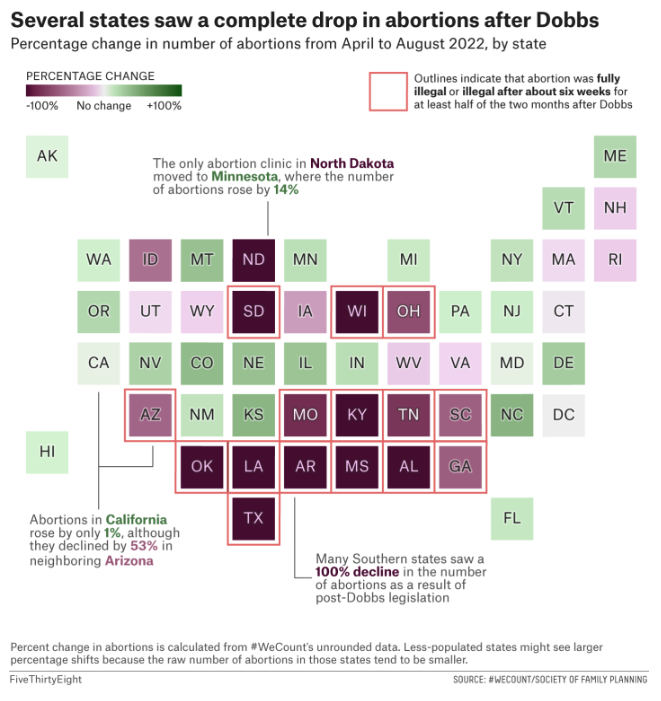BREAKING new data from @FiveThirtyEight:
There were almost 94,000 fewer abortions in states that implemented bans post-Dobbs, just between July and March.
Almost 100k affected and that's not even the full year. fivethirtyeight.com/features/abort…
There were almost 94,000 fewer abortions in states that implemented bans post-Dobbs, just between July and March.
Almost 100k affected and that's not even the full year. fivethirtyeight.com/features/abort…

Abortions rose by ~70,000 in states without bans, but that wasn't enough to make up for the decline. Overall, there were ~24,000 fewer abortions in the U.S. between July '22 and March '23, compared to a pre-Dobbs baseline.
This data is from #WeCount, a project of @SocietyFP, where researchers have been tracking abortion #s for a year. The numbers are estimates and may shift slightly, but it's an extraordinary window into the way Dobbs has already disrupted tens of thousands of Americans' lives.
There is a strong signal in the data that tens of thousands of people are traveling long distances for abortion. Numbers rose massively in areas bordering ban states - esp Florida, Illinois, North Carolina - even as they fell dramatically in ban states like Texas.
And things haven't stabilized yet. We looked at the states that have banned abortion after six weeks and found that abortion in those states tends to drop by 50-60%.
If that happened in FL, where a six-week ban is pending, we could be talking about 4k fewer abortions MONTHLY.
If that happened in FL, where a six-week ban is pending, we could be talking about 4k fewer abortions MONTHLY.

North Carolina is another state that's seen a big surge - and the 72-hour *in-person* waiting period embedded in its new 12-week ban could also be a huge deterrent for people traveling from out of state. 

And remember - these are not quick 24-hour trips for many people. I talked to @FundTexasChoice's Anna Rupani, who said that Texans are traveling thousands of miles round-trip. Her fund's average grant was $1k in the past few months, up from $550 in January 2022.
People who get abortions are often socioeconomically vulnerable. They're not people who are used to hopping on planes. Rupani said that many of their callers have never been through an airport security system before.
And then there are the abortions that DIDN'T happen. Some people almost certainly got abortions outside the legal system. But we'll see the full impact of Dobbs in this year's birth numbers.
Thank you to the extraordinary team @FiveThirtyEight who made this happen: @HumeraLodhi & @ryanabest's incredible viz, @mayasweedler's crack story editing, @holly_fuong's meticulous data editing, and Cooper Burton's equally meticulous copy editing.
And thanks to the researchers @SocietyFP who have spent the past year collecting data that gives us almost real-time estimates of how Dobbs is changing America.
• • •
Missing some Tweet in this thread? You can try to
force a refresh

 Read on Twitter
Read on Twitter






